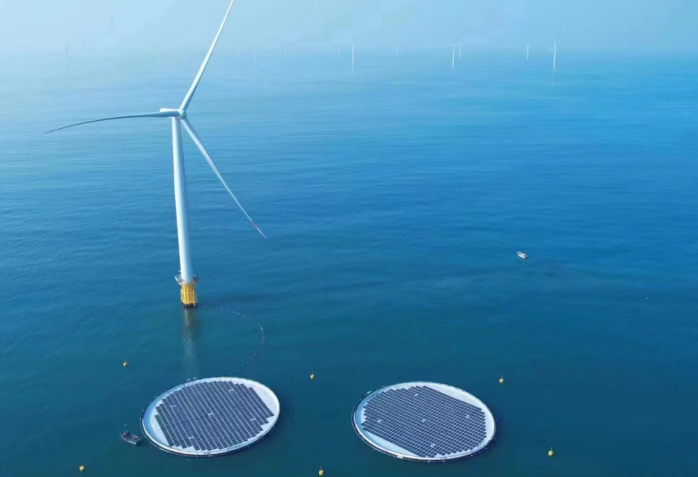Instituto Politécnico Nacional researchers claim to have confirmed the feasibility and eco-friendliness of green hydrogen production from marine systems. Their study – “Feasibility analysis of green hydrogen production from oceanic energy,” recently published in Heliyon – underscores the significance of marine farms with capacity factors equal to or exceeding 50% and wind speeds surpassing 7 meters per second for offshore wind farms. Proximity to the coast enhances economic viability and flexibility while minimizing energy losses. The researchers said that the most suitable equipment for marine conditions are PEME electrolyzers, due to their faster response times to intermittent energy from marine energy sources. They also discussed cost-effective approaches to transport and store wind energy, electric cables for short distances, and hydrogen shipping for distances exceeding 1,000 km. For large hydrogen quantities, they recommend storage in salt caves.
Turkey has started talks with the United Arab Emirates to produce hydrogen and construct an offshore wind facility in Mediterranean waters. “We have a great potential in renewable energy, especially solar and wind,” Turkish Energy Minister Alparslan Bayraktar reportedly said. On social media, he outlined Turkey's energy goals: 42,000 MW of solar, 18,000 MW of wind, and 5,000 MW of offshore wind power by 2035. He also emphasized Turkey's focus on technology transfer in negotiations with Russia for a second nuclear power plant.
Lhyfe and Exogen have agreed to jointly provide decarbonization solutions for industrial steam, district heating, and mobility applications using green hydrogen. Lhyfe said there is a growing demand from multinational companies and industrial clusters seeking operational efficiencies through the integration of thermal and mobility solutions fueled by green hydrogen. These mobility applications include hydrogen refilling stations for forklifts, vans, delivery trucks, and cars. The two companies will primarily target industries with substantial process steam requirements, including pulp and paper, food and beverages, pharmaceuticals, industrial chemicals, and the oil and gas sector. Exogen provides hydrogen-powered steam plants, pre-assembled in container-sized units.
TotalEnergies and Air Liquide have signed an agreement for the long-term supply of green and low-carbon hydrogen to a TotalEnergies refining and petrochemical platform in Normandy, France. Air Liquide will build and operate the Normand'hy electrolyzer, with a total electrical capacity of 200 MW. TotalEnergies will supply around 700 GWh/year of “renewable and low carbon power” to the Air Liquide electrolyzer for half of its capacity.
TotalEnergies has also launched a call for tenders to supply 500,000 tons per year of green hydrogen by 2030. The French energy company will use it in its six European refineries in Antwerp (Belgium), Leuna (Germany), Zeeland (Netherlands), Normandy, Donges, and Feyzin (France), and its two biorefineries in La Mède and Grandpuits (France).
Everfuel has decided to prioritize green hydrogen production capacity development and reduce refueling network investments by high-grading its existing portfolio of refueling stations and projects. It said the decision follows a realignment of strategy, with a new focus on scaling green hydrogen production “to capture significant value creation opportunities led by recent market developments in Germany and Denmark.”
This content is protected by copyright and may not be reused. If you want to cooperate with us and would like to reuse some of our content, please contact: editors@pv-magazine.com.



5 comments
By submitting this form you agree to pv magazine using your data for the purposes of publishing your comment.
Your personal data will only be disclosed or otherwise transmitted to third parties for the purposes of spam filtering or if this is necessary for technical maintenance of the website. Any other transfer to third parties will not take place unless this is justified on the basis of applicable data protection regulations or if pv magazine is legally obliged to do so.
You may revoke this consent at any time with effect for the future, in which case your personal data will be deleted immediately. Otherwise, your data will be deleted if pv magazine has processed your request or the purpose of data storage is fulfilled.
Further information on data privacy can be found in our Data Protection Policy.